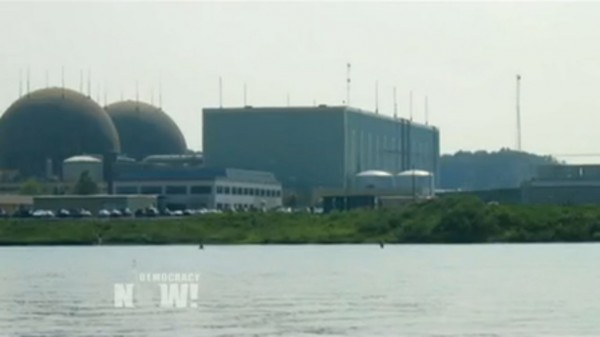The Nuclear Regulatory Commission has acknowledged the massive Sandy storm could impact both coastal and inland nuclear power plants. At least 16 reactors are in the storm’s projected path, including North Anna and Surry in Virginia; Calvert Cliffs in Maryland; Oyster Creek, Hope Creek and Salem in New Jersey; Indian Point in New York; Millstone in Connecticut; and Vermont Yankee. So far, there have been no reports of reactors shutting down, despite operating under licenses that require them to do so if weather conditions are too severe. “The biggest problem, as I see it right now, is the Oyster Creek plant, which is on Barnegat Bay in New Jersey,” says former nuclear executive Arnie Gundersen, noting it lies in the projected eye of the storm. “Oyster Creek is the same design, but even older than Fukushima Daiichi unit 1. It’s in a refueling outage. That means that all the nuclear fuel is not in the nuclear reactor, but it’s over in the spent fuel pool. And in that condition, there’s no backup power for the spent fuel pools. So, if Oyster Creek were to lose its offsite power — and, frankly, that’s really likely — there would be no way to cool that nuclear fuel that’s in the fuel pool until they get the power reestablished. … The most important lesson we can take out of the Fukushima Daiichi and climate change, and especially with Hurricane Sandy, is that we can’t expect to cool these fueling pools.”
Interview with Arnie Gundersen begins at 44:43
http://www.democracynow.org/2012/10/29/nuclear_plants_from_virginia_to_vermont










